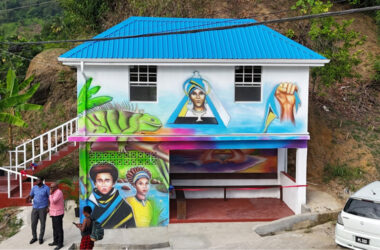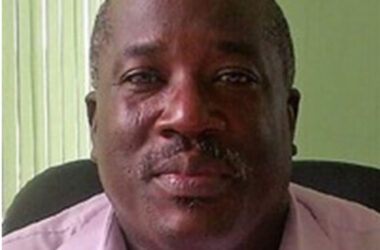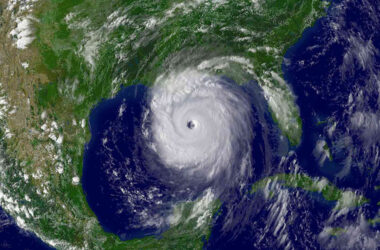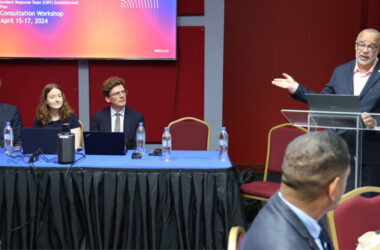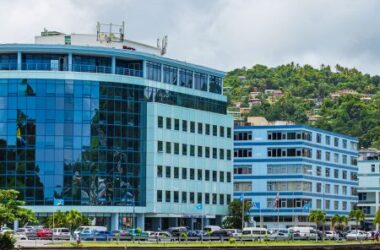
COMMENTING on the crime situation within the constituency of Anse La Raye /Canaries – Parliamentary Representative for the area Wayne Girard contends that the negative influence of returning nationals or deportees involved in criminal activity and other such persons from overseas permeates throughout the community.
Speaking to reporters recently with particular reference to the Jacmel area and its vicinity, in Roseau, Girard said this is a situation that the authorities are scrutinizing very closely, since it gravitates to young people getting lured into criminal activities.
He said that government “recognizes the challenges that exist there” and are making the necessary interventions to deal with the issue, and also, to diffuse the stigma of the district being regarded as a trouble community.
“Partly, we have a system where residents go overseas from a particular community, they find themselves in trouble overseas, and they get trained in the things that are not lawful. And when they are deported they return to the country and create a problem,” noted Girard.
“So, there is an element of outside influence, but …we all need to redouble our efforts to do what we can to mitigate that outside influence,” he added.
He recalled that during his boyhood days, growing up in Jacmel, it was rare to observe fighting among residents in the community “and very short-lived because (people from) the community would separate (the fight)”.
Presently, he stressed, “In this particular instance everybody is playing (turning) a blind eye and saying it’s not their business, until it gets to their doorstep.”
The MP continued, “If is one thing that we know …it may not get to you today, but at some point, if we do not arrest the situation it will get to your doorstep.”
Consequently, said Girard, in an effort to beef up the country’s national security, the government has taken steps to implement the 2.5% Security Levy.
“It is not simply because we are happy with the minor benefits that we are getting. We want to enhance our police force, in terms of access to more equipment, more technology, and that is one of the principal reasons for (introducing) the 2.5% Levy,” he stated.
Assessing the situation more critically, Girard declared: “Nobody wants to live in a society where they have to worry about when they leave their home, and when they come back whether their furniture will be there when they go out and have a decent lime.”
In an effort to address some of these social ills and facilitate better economic fortunes within the wider community, the parliamentary representative disclosed that the Anse La Raye ‘Fish Fry’ will be relaunched on January 26.
Girard asserted that it is imperative to sustain a peaceful, harmonious and thriving community to allow for the welfare of residents and the free flow of visitors to the area.
“It’s in our interest to ensure that we have and maintain a very safe community and country,” he noted.
A Social Justice/Global Option (JSTOR) publication contends that, “A wide variety of risk factors contribute to the prevalence of youth violence, including poverty, youth unemployment, large scale migration to urban areas, drug trafficking, a weak educational system, ineffective policing, the widespread availability of weapons, drug and alcohol use, and the presence of organized gangs.”
It has been determined that officials throughout the region speak of ‘sophisticated’ criminal activity with reference to what they consider to be a qualitative change in the types of crime being perpetrated. These’ sophisticated’ crimes range from carjackings in Guyana to gun slayings in the Dominican Republic to kidnappings in Haiti, to bank robberies in Barbados.
And in practically all situations, government officials claim that criminal deportees-nationals who have been deported after having served criminal sentences in foreign countries-are introducing to their native lands ‘sophisticated’ criminal lessons learned in those foreign countries.
Taking into context the situation in Barbados as exemplified in other regional territories, an in-depth survey conducted by Clifford E. Griffin for the University of the West Indies (UWI) states that similar concerns over crime and criminal deportees are shared by Caribbean countries and suggests that regional governments might consider implementing some ‘governance measures’ to address some of these mutually important issues.
[R.A].



